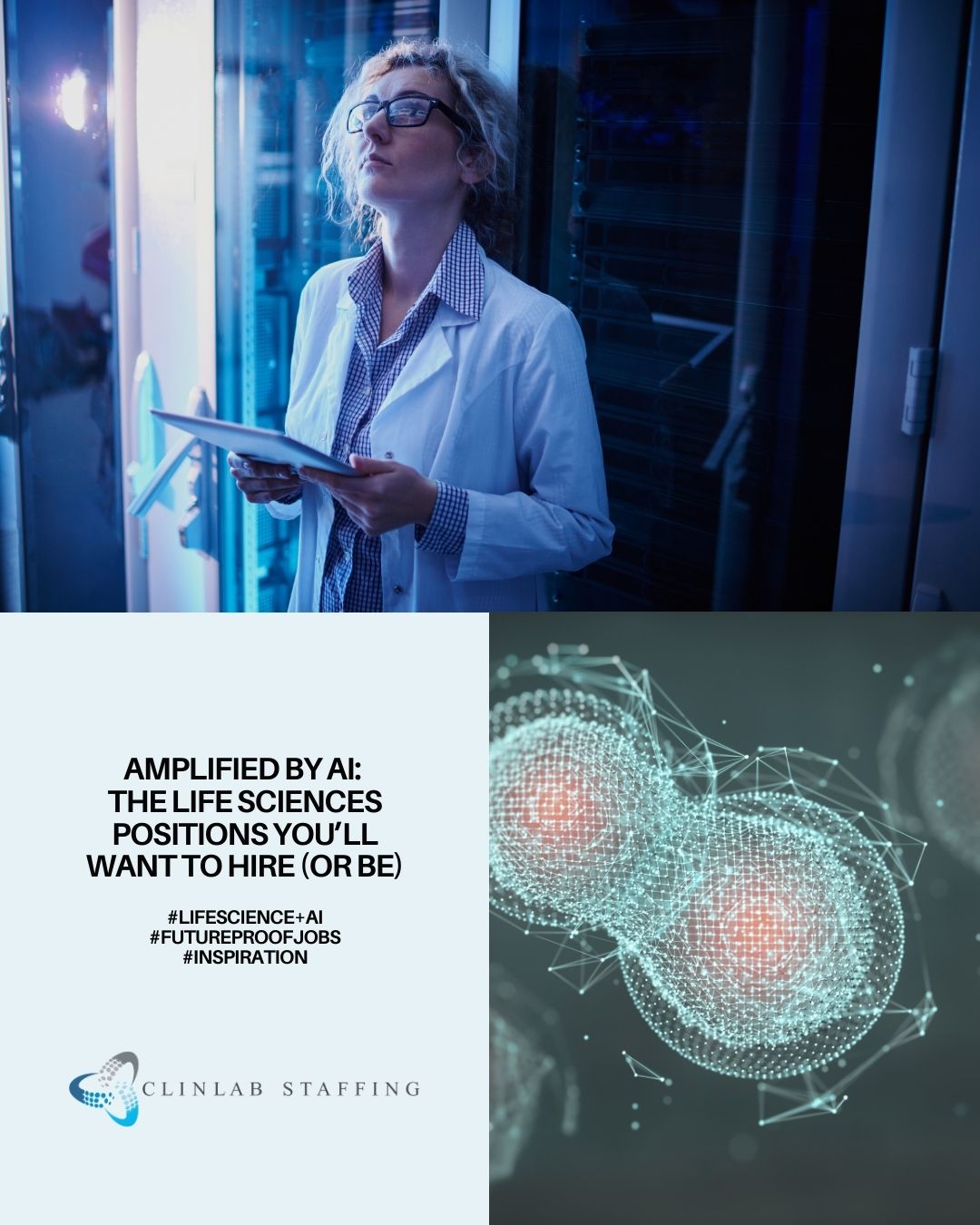AI is reshaping the life sciences industry—not by eliminating jobs, but by transforming them. From streamlining drug discovery to optimizing clinical trials, artificial intelligence is becoming a powerful tool for professionals across the field. The most future-proof jobs won’t resist AI—they’ll leverage it.
 That said, not all roles will benefit equally. The jobs most likely to thrive will be the ones that combine human judgment, strategic thinking, and interpersonal skills alongside AI’s efficiency and data-crunching capabilities.
That said, not all roles will benefit equally. The jobs most likely to thrive will be the ones that combine human judgment, strategic thinking, and interpersonal skills alongside AI’s efficiency and data-crunching capabilities.
Here are five life sciences careers that are poised to grow stronger with the rise of AI:
1. Clinical Research Associate (CRA)
AI is making trial monitoring faster and data reporting more accurate—but CRAs remain essential. They ensure ethical conduct, manage relationships with investigators, and oversee trial operations on the ground. With AI handling administrative tasks, CRAs can focus more on strategic oversight and patient engagement.
How AI helps: Automates data checks, flags protocol deviations, and streamlines reporting.
Human edge: Relationship-building, judgment, regulatory interpretation.
2. Regulatory Affairs Specialist
AI can support the complex process of preparing and submitting regulatory documents by identifying gaps or inconsistencies. However, navigating global regulatory frameworks and customizing submission strategies still requires expert insight.
How AI helps: Assists with documentation, predicts timelines, and mines historical approvals.
Human edge: Strategic planning, cross-functional coordination, negotiation.
3. Quality Assurance & Compliance Professional
AI tools can improve audit readiness, track deviations, and streamline documentation. But the QA role is about more than compliance—it’s about safeguarding trust, interpreting nuance, and ensuring that quality standards are met at every level.
How AI helps: Enhances data tracking, flags potential compliance risks, automates routine QA tasks.
Human edge: Decision-making, ethical oversight, hands-on investigation.
4. Medical Science Liaison (MSL)
MSLs provide the scientific link between research teams and healthcare providers. AI can surface insights and suggest talking points, but real conversations—especially around complex data—require empathy, adaptability, and credibility.
How AI helps: Prepares tailored content, analyzes HCP engagement data, and tracks medical trends.
Human edge: Interpretation, rapport-building, real-time communication.
5. Lab Technician (Advanced Assays & Diagnostics)
Automated platforms are taking over repetitive tasks, but lab techs skilled in troubleshooting, adapting protocols, and analyzing unusual results are becoming even more valuable. As labs grow more data-driven, those who understand both the science and the systems will lead.
How AI helps: Runs routine processes, tracks samples, and flags anomalies.
Human edge: Hands-on expertise, critical thinking, adaptability to new methods.
Thriving with AI: It’s About Collaboration, Not Competition
The future of life sciences work isn’t about AI replacing people—it’s about AI enhancing what people do best. Jobs that blend technical skill with human insight, communication, and strategic thinking will continue to grow—even as automation takes on more of the routine.
To stay ahead, life sciences professionals should embrace lifelong learning, develop fluency with digital tools, and see AI as a collaborative partner. The more adaptable you are, the more AI becomes an advantage—not a threat.
ClinLab partners with life sciences companies to deliver top scientific talent—whether you need temporary, contract-to-hire, or full-time professionals. We understand the demands of a fast-changing industry and help you stay productive with qualified candidates who are ready to contribute from day one.
Need to scale your team or fill a critical role? Let’s connect.
